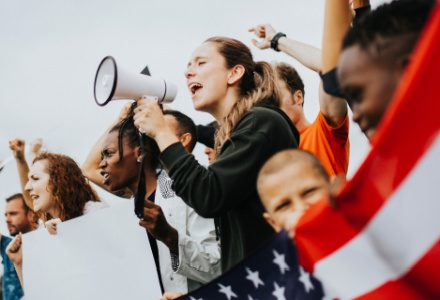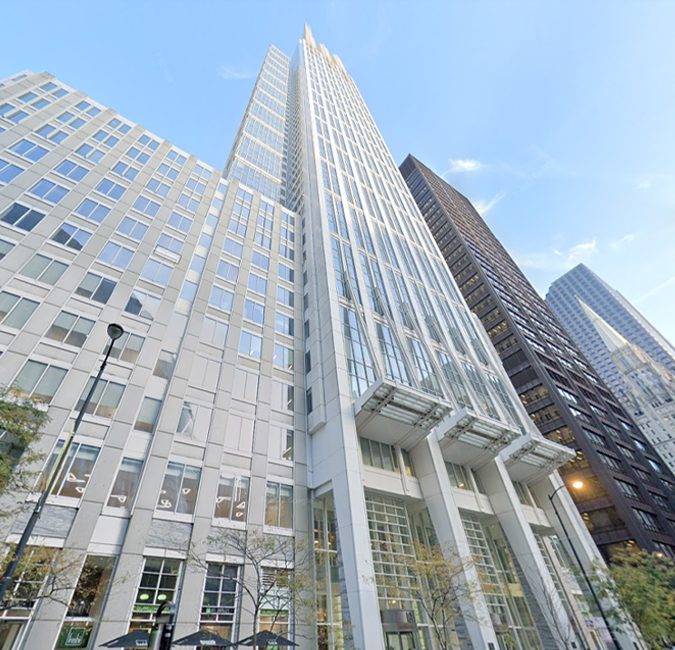Freedom of Association
Chicago Freedom of Association Lawyer
The First Amendment states that “Congress shall make no law…abridging the freedom of speech, or the press or the right of the people peaceably to assemble, and to petition the Government for a redress of grievances.” The freedom to associate means the right of people to gather and discuss and pursue common goals or interests.
What should you do if you find yourself in a situation where your right to associate is being hampered? Have you learned that your job is in jeopardy because of your associations? Maybe your identity as part of an association or group is at risk of exposure. If you believe someone has interfered with your right to associate, consult with a lawyer immediately.
Know Your Rights
The First Amendment protects your right to associate with people holding similar political, social, cultural, or other ideas without interference or involvement of the government. The right to freedom of association protects, for example, participation in a wide range of organizations: political parties, special interest groups, religious organizations and clubs, labor unions, artistic clubs, and many other types of organizations and associations. Clubs, organizations, and associations do not have to be focused on politics or religion to receive First Amendment protection from government interference.
Additionally, the First Amendment also protects our rights not to associate with clubs, organizations, or associations we have no interest in or oppose.
The United States Supreme Court has made it clear that the First Amendment protects the right of association. Some of the earliest cases arose from the civil rights era when government entities tried to impede the actions of various civil rights organizations. In 1958, Justice John Marshall Harlan wrote, “It is beyond debate that freedom to engage in association for the advancement of beliefs and ideas is an inseparable aspect of liberty which embraces freedom of speech.” In 1980, Chief Justice Warren Burger in Richmond Newspapers v. Virginia asserted that the right of association was among the “unarticulated rights…implicit in enumerated guarantees of the Constitution.”
The freedom of association is much broader than a mere prohibition on the government’s closing groups or organizations from operating. Freedom of association prevents the government from targeting individuals who join disfavored groups. Nor can the government force the disclosure of lists disclosing the identities of individuals who donate to certain groups without a very strong reason.
Conflicts Regarding Freedom of Association
The right of association can sometimes conflict with anti-discrimination laws. As more cities and states expand the reach of their anti-discrimination laws, the greater the likelihood that those laws will conflict with protected First Amendment rights.
Additionally, problems arise with respect to anonymity when associating with certain organizations. In today’s political climate, a person associated with a certain group may be harassed, ostracized, or discriminated against due to their association with that group. Many donors worry that their association with political organizations or social groups may cause them to lose their jobs and/or harm their reputations. These concerns will inhibit many people from joining or supporting various organizations or groups. These concerns have prompted courts to place limits on the ability of states and the federal government to access private donor membership lists.
Notable Cases Involving the Freedom to Associate
Boy Scouts of America v. Dale (530 U.S. 640) – This case stemmed from the firing of an assistant scoutmaster by the Boy Scouts of America after he publicly identified himself as homosexual. The scoutmaster claimed his firing was discriminatory, while the Boy Scouts claimed that forcing them to include homosexual members or leaders would infringe upon their right to expressive association. The New Jersey Supreme Court ruled in favor of the scoutmaster, but the Supreme Court overturned the decision. According to author David E. Bernstein, by placing the right to expressive association above the interests of antidiscrimination policy, this decision marked a shift toward “recognition of expressive association as a full-fledged First Amendment right.”
Americans for Prosperity Foundation v. Bonta (141 S. Ct. 2373) – This case arose from a California law that would have obligated not-for-profit charities to disclose certain IRS Forms to the State of California in the name of preventing fraud. While the Supreme Court recognized that a State can obtain targeted information in order to prevent fraud or to stop criminal behavior, the Court held that the California law was much too broad in its scope given the sensitive information it was requesting: “California casts a dragnet for sensitive information from tens of thousands of charities each year, even though that information will become relevant in only a small number of cases involved filed complaints.”
Speak to a Civil Rights Attorney Today
Litigating First Amendment issues can be confusing and complex. When bringing a legal claim on these grounds, the resources and experience of a reputable lawyer are necessary to ensure your freedoms are protected and your right to associate is defended.







